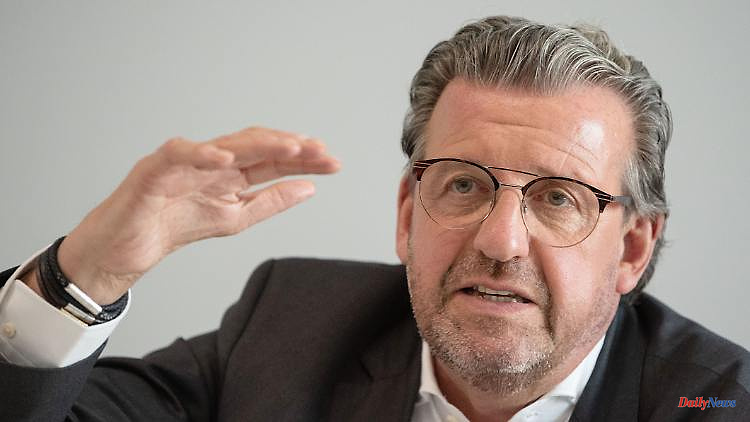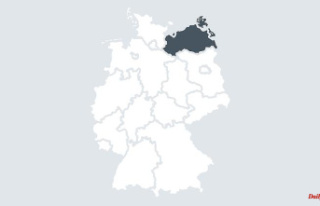"We will have to work longer and harder," predicts Gesamtmetall President Stefan Wolf. Otherwise the system threatens to collapse in the medium term. However, the employer representative makes it clear what he thinks of IG Metall's demands for more wages.
The president of the employers' association Gesamtmetall, Stefan Wolf, has advocated a gradual increase in the retirement age to 70 years. "If you look at the demographic development and the burden on social security and pension funds, then the reserves have been used up. We will have to work longer and more," Wolf told the newspapers of the Funke media group.
"Step by step we will have to go up to the retirement age of 70 years - also because the age continues to rise," said the head of Gesamtmetall. Otherwise the system will no longer be financially viable in the medium term. According to the current legal situation, the age limit for the pension will be gradually raised from 65 to 67 years without deductions until 2029.
Federal Minister of Labor Hubertus Heil rejects a further increase. As early as May, after a push by economists to retire at 70, he said: "We have agreed in the coalition that we will not raise the statutory retirement age. And that will not change."
In view of the economic situation, Wolf warns IG Metall against all-day strikes ahead of the forthcoming wage round in the metal and electrical industry. "I'm definitely counting on warning strikes, that's an elementary part of IG Metall. I just hope that IG Metall will come to its senses and reconsider their instrument of all-day strikes," Wolf told the newspapers. Wolf called the demand for eight percent more wages "irresponsible". The production of the metal and electrical industry is still 12 percent below the level of 2018. If the high inflation were counteracted with wage increases, one would get into a wage-price spiral, he said.
Should the supply of Russian gas be stopped, Wolf does not rule out the possibility that the right to strike could be violated by declaring a national emergency. "In principle, proportionality must be maintained. But if there are such impairments that cause damage to the economy, then Germany's reputation is also at stake." Negotiations with employers in Germany's largest industry, with 3.8 million employees, are scheduled to begin in mid-September. The peace obligation ends on October 28, after which a strike would be possible.












